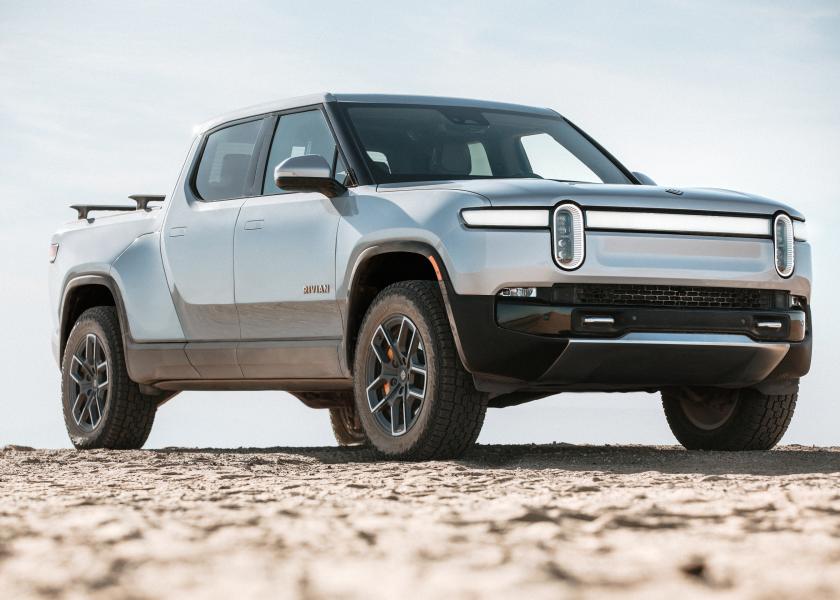California Approves Plan to 'Move State Away From Oil' by 2035

Noting an urgent need to address climate change while cutting back on air pollution, the California Air Resources Board (CARB) voted Thursday to require all new cars and light trucks sold by 2035 to be zero-emission vehicles.
Lauren Sanchez, Gov. Gavin Newsom’s climate advisor, called it “a huge day not only for California but the entire world.” The mission, she said: “Move the state away from oil.”
Liane Randolph, chairwoman of the CARB, said the rule is one of the state’s most important efforts yet to clean the air and will lead to a 50% reduction in pollution from cars and light trucks by 2040.
The EV Scoop
Congress gave California permission to set its own rules under the Federal Air Quality Act of 1966 when the state was combatting the toxic yellow-brown smog that hung over Los Angeles.
The Trump administration in 2019 revoked California’s authority to regulate its own air quality, but the Biden administration restored that authority earlier this year.
Already, 15 states, including Colorado and Minnesota, as well as states on the Northeast and West Coast, followed California’s previous zero-emission vehicle regulations.
New York, Oregon, Washington state and Rhode Island officials they plan to adopt California’s rule through their own rule-making process, while New Jersey and Maryland officials said they were reviewing California’s decision. Public comment in Washington state on a similar plan will start Sept. 7.
More than 16% of new cars sold in California in 2022 were zero-emissions vehicles, the state said, up from 12.41% in 2021 and 7.78% in 2020.
What's Next for America and Electric Vehicles
The rules won’t be immediate and will go into effect in 2026. The mandate forces automakers to phase out gasoline and diesel cars, sport utility vehicles, minivans and pickup trucks in favor of cleaner versions powered by batteries or fuel cells. If automakers do not comply, they could be charged $20,000 per noncomplying car, CARB said.
What if consumers don’t go along? One option: People could still buy internal combustion cars from another state without the mandate. And it will still be legal to buy and sell used fossil-fuel cars and light trucks.
Under the new rules, 35% of new cars must be zero emission by 2026, 51% by 2028, 68% by 2030, and 100% by 2035. The quotas also would allow 20% of zero-emission cars sold to be plug-in hybrids.
The mandate doesn’t cover all of highway transportation: Heavy trucks that burn diesel fuel will have 10 extra years before they are banned. A proposed zero-emission mandate for heavy trucks wouldn’t hit 100% until 2045.
Also, up to 20% of a carmaker’s sales can be plug-in hybrids, which have both electric motors and gas engines, and still count as zero-emission, as long as the minimum battery range is 50 miles or more.
As part of the California mandate, the state will require specific levels of warranty protection for EV batteries and related components.
Notable Hurdles for EV's
One of them is that an electric car still costs far more than an equivalent gasoline car. According to Kelley Blue Book, the average EV sold for $66,000 in July, compared with $48,000 for the average international-combustion vehicle.
CARB officials pointed to studies that show savings in fuel and maintenance can make an EV a better financial deal over time, and that prices would continue to drop.
Charging is another hurdle. While homeowners can install their own EV charger in a garage, most people who live in apartment buildings and condos don’t have that option. California plans to require multifamily housing landlords to provide some way to charge electric cars.
John Bozzella, president and CEO of the Alliance for Automotive Innovation, which represents major automakers, said California’s mandate would be “extremely challenging” for automakers to meet.
“Whether or not these requirements are realistic or achievable is directly linked to external factors like inflation, charging and fuel infrastructure, supply chains, labor, critical mineral availability and pricing, and the ongoing semiconductor shortage,” Bozzella said in a statement. “These are complex, intertwined and global issues.”
State officials said the rule is critical to meeting to state’s goal to transition to 100% renewable energy by 2045, and that resulting emissions reductions would lead to fewer cardiopulmonary deaths and emergency visits for asthma and other illnesses.
Ag Industry Responds
While environmental groups were largely very complimentary, some said the CARB rule didn’t go far enough. The National Corn Growers Assn. (NCGA) released the following statement:
“As NCGA told regulators during the rulemaking process, constraining the vision of a zero-emission future prevents the state from tapping into the immediate and affordable environmental solutions that come from replacing more gasoline with low-carbon and low-cost ethanol, in both current and new vehicles, including new plug-in hybrids," NCGA wrote. "Ethanol is on a path to net zero emissions, and NCGA will continue to work with and urge California to use all the tools in its toolbox as it addresses climate change and cuts harmful tailpipe emissions. As recent University of California, Riverside, vehicle testing for CARB found, higher ethanol blends, like E15, significantly reduced most criteria air pollutants compared to standard 10% ethanol blends.”







